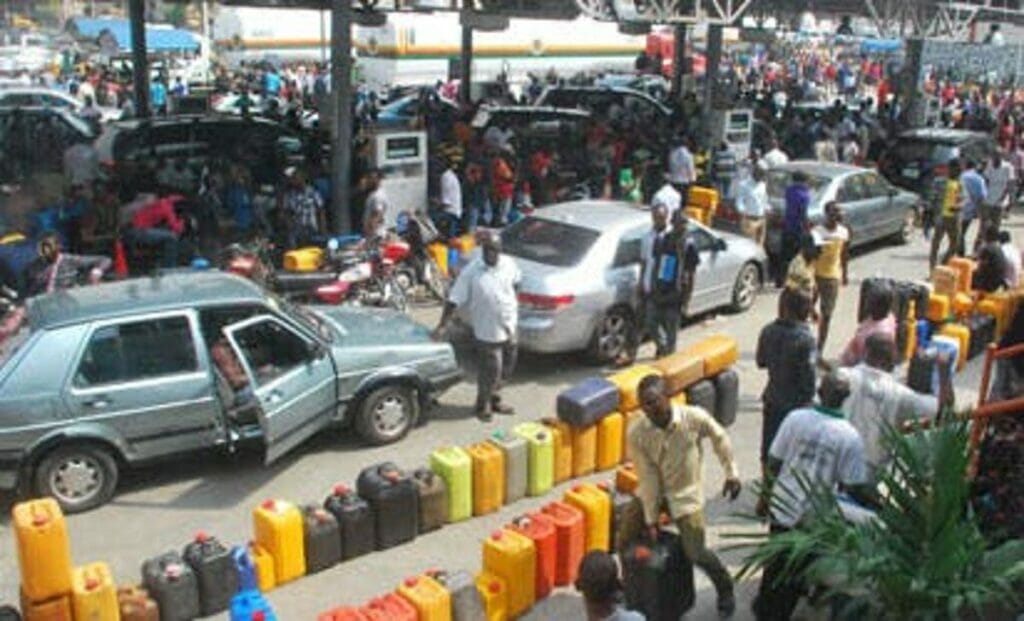Nigerian National Petroleum Company (NNPC) Limited has, at last, explained why there has been a recent fuel shortage in Lagos, Abuja, and some other major cities.
The NNPC has blamed ongoing road projects in Lagos for the lack of fuel and long lines at filling stations in what appears to be their first official response to the crisis in the downstream oil industry.
Adeyemi Adetunju, executive vice president for downstream at NNPC, announced this during a press conference on November 29, 2022, in Abuja.
Adetunju did point out that the gridlock is easing as a result of the NNPC scheduling trucks and vessels to unconstrained depots while closely monitoring large-scale load outs from depots to different states.
Adetunju said,
‘’The recent queues in Lagos are largely due to ongoing road infrastructure projects around Apapa and access road challenges in some parts of Lagos depots. The gridlock is easing out and NNPC has programmed vessels and trucks to unconstrained depots and massive load outs from depots to various states are closely being monitored.
“Abuja is impacted by the challenges recorded in Lagos. NNPC retail and key marketers have intensified dedicated loading into Abuja to restore normalcy as soon as possible.”
The NNPC top official assured Nigerians that efforts are ongoing to ensure that normalcy returns as soon as possible.
He said, “We want to reassure all Nigerians that NNPC has sufficient products, and we significantly increased product loading, including 24-hour operations in selected depots and extended hours at strategic stations to ensure products sufficiency nationwide.’’
“We are also working with the NMDPRA, MOMAN, DAPPMAN, IPMAN, NARTO, PTD, and other industry stakeholders to ensure normalcy is returned.”
Adetunju added that the NNPC has a “national petrol stock of over 2 billion litres. This is equivalent to over 30 days of sufficiency.
